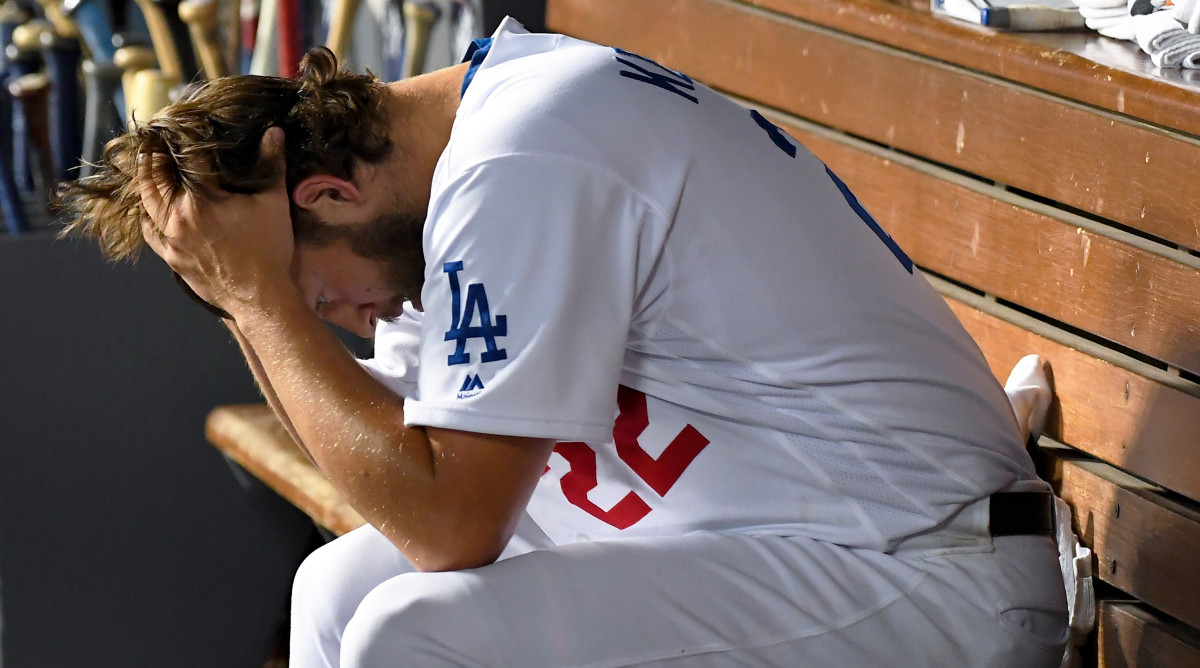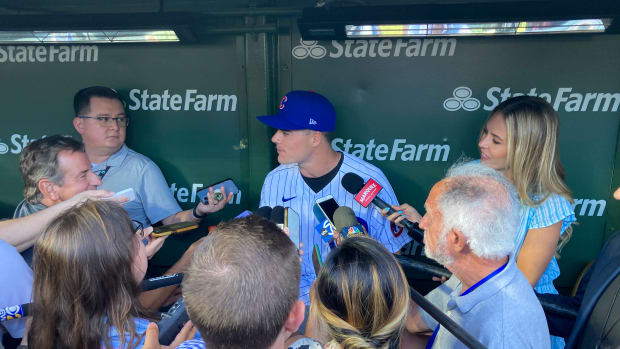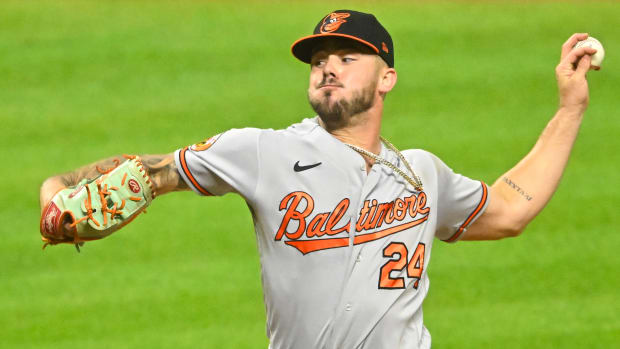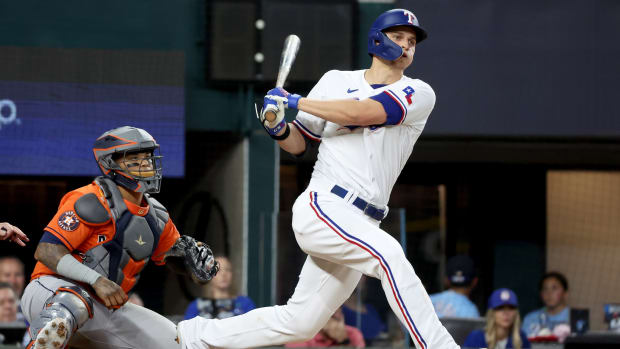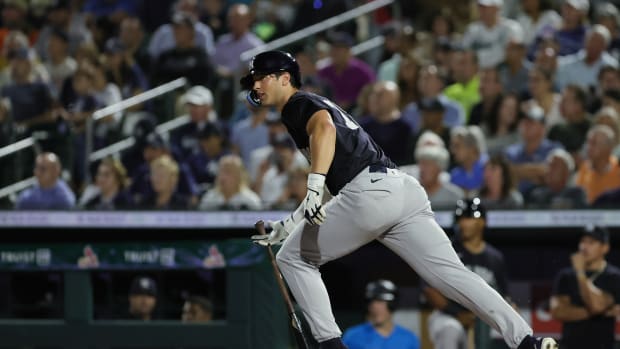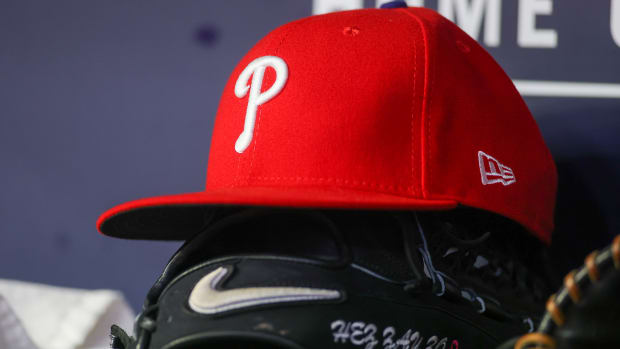Clayton Kershaw Carries Playoff Failures Into Another Offseason of Broken Dreams
LOS ANGELES — Two hours after the greatest pitcher of his generation again cost his team a chance at a championship, the only pitching coach he has ever known found him.
The NLDS was finished. It had been emotionally finished since Clayton Kershaw, entering the eighth inning with a two-run lead, allowed home runs on consecutive pitches to tie the game. And now it was literally finished, after the Nationals hit a 10th-inning grand slam to win Game 5, 7–3.
The men in red spilled out of their dugout and dogpiled behind the mound, celebrating the franchise’s first postseason series win since 1981, when they were the Montreal Expos. The men in blue stared vacantly, then staggered out of the dugout and into winter. The Dodgers had won 106 games, the most in team history. They had spent the season dreaming of glory after losing in two straight World Series. But here they were, on Oct. 9, finished.
“I love you,” said Rick Honeycutt, who has guided Kershaw since he debuted at 20 in 2008. “You always give everything you’ve got. Sometimes it don’t work out.”
Kershaw burst into tears. He carries each of his playoff failures with him, a sharp pain that occasionally catches him off-guard on the golf course or in the weight room.
There have been so many. His ERA is 2.44 in the regular season and 4.33 in October. In the deciding Game 6 of the 2013 NLCS against the Cardinals, Kershaw allowed seven runs in four-plus innings. A year later, in Game 1 of the NLDS against St. Louis, he took a 6–2 lead into the seventh inning, then surrendered six runs. In ’16 he was all but heroic until the deciding Game 6 of the NLCS against the Cubs, when he gave up five runs in five innings. In Game 5 of the ’17 World Series against the Astros, staked to a 4–0 lead in the fourth inning, he promptly allowed four runs. A year later, he took the loss against the Red Sox in Games 1 and 5 of the World Series.
And now there was another. No matter that this one was barely his fault, that an aging starter shouldn’t have been in the game at all, not with a bullpen full of true relievers sitting idle. His manager had fallen in love with the pitcher he used to be, the one with 95-mph heat and a biting slider. And Dave Roberts had failed to notice the pitcher he had become, the one who tops out at 91 and struggles to make his breaking ball dance.
“Clayton, it's not about analytics,” said Roberts afterward. “It's about, he's one of the best pitchers in the game and for him to go out there and throw four pitches and to go back out there and get two hitters, I felt really good about that. So it's more of, I don't think it was an analytic question. It's a guy that I believe in and I trust, and it didn't work out.”
No matter that his teammates did not blame him. “We win as a team, we lose as a team,” said closer Kenley Jansen, one of the relievers Roberts felt he could not trust in that eighth inning. Game 4 starter Rich Hill choked up when he heard of Kershaw’s annual self-flagellation.
“No,” he said. “We wouldn’t be here without him. No. He’s …” He paused to collect himself. Twenty seconds later, he continued, “I have ultimate respect for him. This means so much to everybody in this locker room. That’s the tough part. People say it’s just a game. It’s a lot more than that.”
In the clubhouse afterward, his eyes red-rimmed and vacant, Kershaw could not see that nuance. He holds an even less forgiving view of himself than do most fans: He believes that he possesses incredible talent, and each time he fails to fulfill it, he has committed an affront against the God who gave it to him.
He could not stop replaying the scene: He had trotted in from the bullpen in the seventh, tasked with getting three outs in relief of a brilliant Walker Buehler. Kershaw had struck out the first hitter he saw to close the frame. To open the next one, he had let an 89-mph fastball drift inside to Washington MVP candidate Anthony Rendon. And then he’d hung an 89-mph slider to 20-year-old phenom Juan Soto.
Kershaw hung his head. He did not protest when Roberts trudged to the mound and asked for the ball.
He has done this so many times. He has watched his teammates fight to win a playoff game he has already lost. He has watched opponents celebrate a victory that he was certain would be his. He has sat in front of his locker and stonily accepted condolences from teammates and coaches. He has replied in a whisper barely audible above the sound of packing tape sealing cardboard boxes and a failed season. He has stood in front of a dozen cameras and said some version of what he said on Wednesday night: “That’s the hardest part every year. When you don’t win the last game of the season and you’re to blame, it’s not fun. … Everything people say is true right now about the postseason. I understand that. Nothing I can do about it right now. It’s a terrible feeling, it really is.”
How many more times will he do this? He is 31. The Dodgers have won seven straight division titles and still have nothing to show for it. Kershaw has spent parts of each of the last four seasons on the injured list with back pain and left-shoulder inflammation. In this series, for the second time since 2009, he did not serve as Game 1 starter. He refuses to discuss his professional mortality, but he feels it.
He showered and returned to his locker. Slowly he dragged himself into his street clothes: an orange T-shirt and a pair of gray shorts. He slid on his right sock. Then he stopped. He stared blankly at the wall, his phone, the air. The clubhouse cleared out around him. Still he sat there, lost in thought, his season over, his left foot bare.






























